There are two main password attacks leveraged by adversaries; one is called Password Spraying and the other is called Kerberoasting. This post focuses on identifying accounts that may be targeted for Kerberoasting and how to harden the environment against Kerberoasting.
Tag: PowerShell
Sep 16 2025
Active Directory Lab Build Script
Over the summer, I rebuilt my Active Directory lab environment with multiple regional domains. Instead of manually configuring common issues, I decided to create a PowerShell script to do this for me.
Sep 14 2025
Active Directory Security Tip #2: Active Directory User Accounts
There are several different types of user accounts – at least how they are used. There are standard user accounts, service accounts, and admin accounts. There are numerous user account settings that can make them vulnerable. These configurations include: PowerShell code (using Active Directory PowerShell module):https://github.com/PyroTek3/Misc/blob/main/Get-VulnerableUserAccounts.ps1
Sep 27 2016
Some Favorite DerbyCon 6 Talks (2016)
This post is a collection of my favorite and interesting talks from DerbyCon 6 (2016). There were a lot of great talks and as I discover them, I’ll add them here. My goal is to collect and provide the talk videos and slides together for a single, easy reference. I’m sure I missed a few. …
Jul 06 2016
DEF CON 24 (2016) Talk – Beyond the MCSE: Red Teaming Active Directory
This August at DEF CON 24, I will be speaking about Active Directory security evaluation in my talk “Beyond the MCSE: Red Teaming Active Directory”. This talk is focused on the Red side of AD security, specifically how to best evaluate the security of AD and quickly identify potential security issues. Whether you perform “Red …
Apr 24 2016
BSides Charm Presentation Posted: PowerShell Security: Defending the Enterprise from the Latest Attack Platform
This was my second year speaking at BSides Charm in Baltimore. Last year I spoke about Active Directory attack & defense and it was my first time speaking at a conference. 🙂 The presentation slides for my talk “PowerShell Security: Defending the Enterprise from the Latest Attack Platform” are now on the Presentations tab here …
Dec 31 2015
Cracking Kerberos TGS Tickets Using Kerberoast – Exploiting Kerberos to Compromise the Active Directory Domain
Microsoft’s Kerberos implementation in Active Directory has been targeted over the past couple of years by security researchers and attackers alike. The issues are primarily related to the legacy support in Kerberos when Active Directory was released in the year 2000 with Windows Server 2000. This legacy support is enabled when using Kerberos RC4 encryption …
Nov 22 2015
Dump Clear-Text Passwords for All Admins in the Domain Using Mimikatz DCSync
The two key goals of any attack is access and persistence. This post covers elements of each. In a post-exploitation scenario where the attacker has compromised the domain or an account with delegated rights, it’s possible to dump the clear-text passwords of admins without being a Domain Admin*. This method requires the Active Directory Domain …
Sep 16 2015
Sneaky Active Directory Persistence #12: Malicious Security Support Provider (SSP)
The content in this post describes a method by which an attacker could persist administrative access to Active Directory after having Domain Admin level rights for 5 minutes. I presented on this AD persistence method in Las Vegas at DEF CON 23 (2015). Complete list of Sneaky Active Directory Persistence Tricks posts The Security …

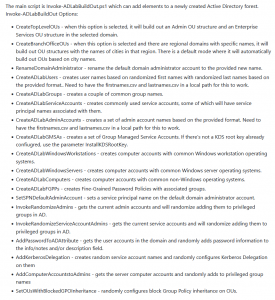
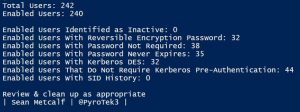
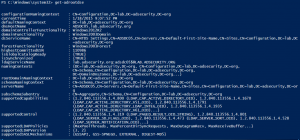
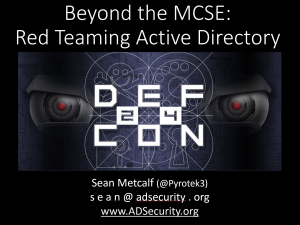
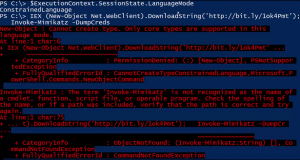
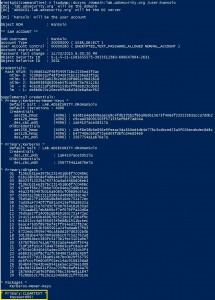
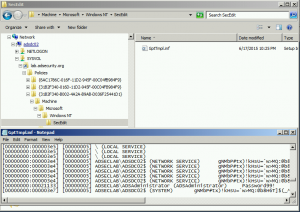
Recent Comments